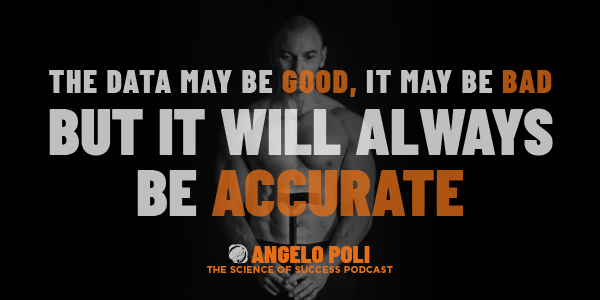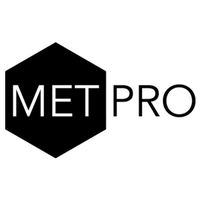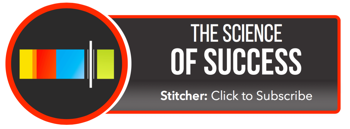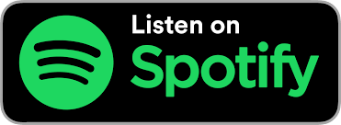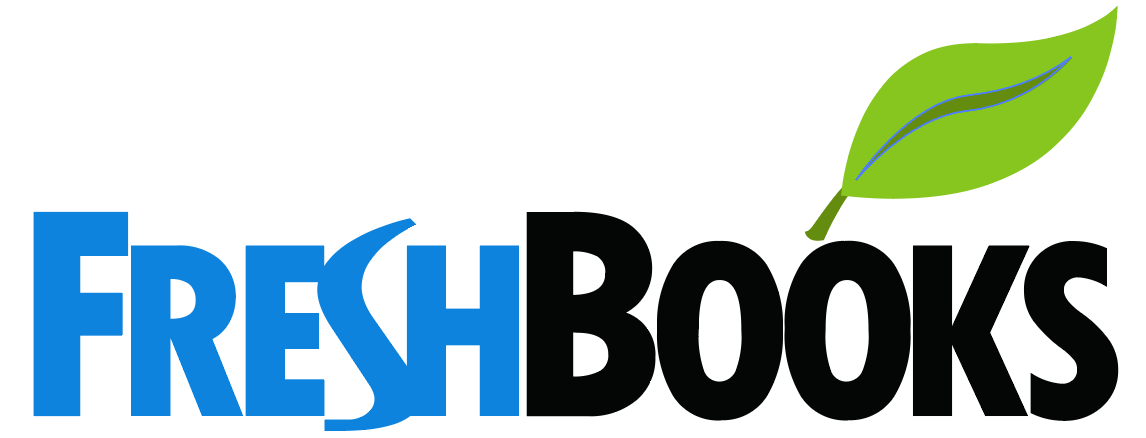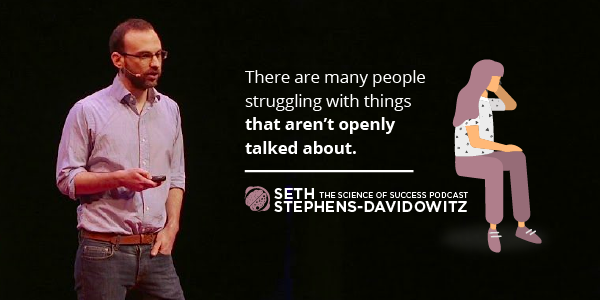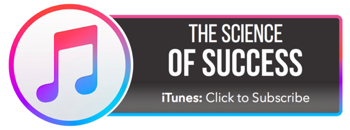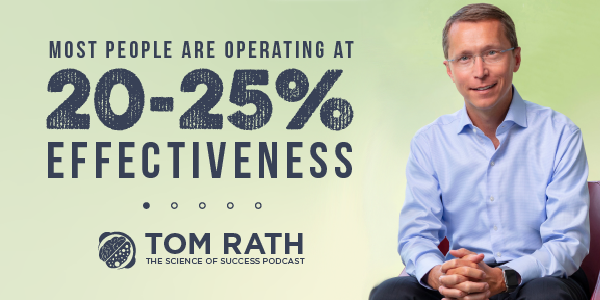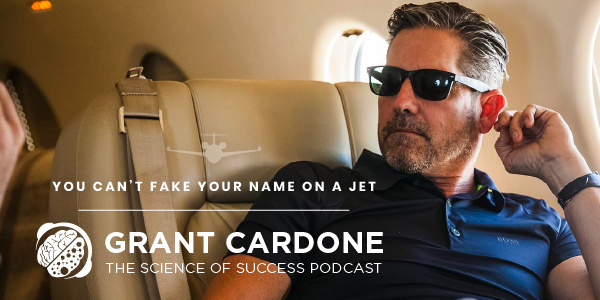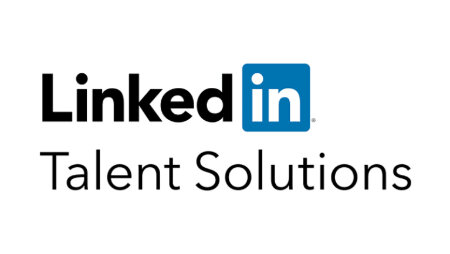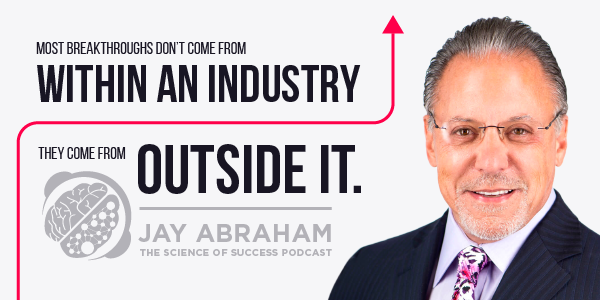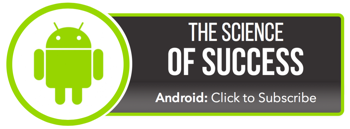How To Remember Everything - Lessons From a Memory Champion with Nelson Dellis
In this episode we share how to memorize a deck of cards in less than 60 seconds, how to remember anything, and hacks from one of the world’s leading memory experts, our guest, Nelson Dellis.
Nelson Dellis is a 4x USA Memory Champion and one of the leading memory experts in the world. Nelson travels around the world as a competitive Memory Athlete, Memory Consultant, Alzheimer's Disease Activist and highly sought-after Keynote Speaker. He is the author of the best-selling -- "Remember It! The Names of People You Meet, All of Your Passwords, Where You Left Your Keys, and Everything Else You Tend to Forget", -- I Forgot Something (But I Can't Remember What it Was), and the upcoming Memory Superpowers!: An Adventurous Guide to Remembering What You Don't Want to Forget.
What is a memory champion?
How to memorize a deck of cards in less than 60 seconds
How to memorize a page full of numbers in less than 5 minutes
Do you have to be a genius to memorize this kind of stuff?
12.75 seconds is the world record for memorizing a deck of cards
What enables normal people to achieve fantastical feats of memory?
Across the board everyone is using more or less the same foundational techniques for memory competition
3 Steps to Memorize Anything
(1) Take what you’re memorizing and encode it into some kind of mental image. Represent complicated information as a mental picture.
(2) Take the mental image that you encode and organize them in your mind in a way that makes it easily retrievable in the future.
(3) Review - solidify and push information into the long term memory.
Strategies for encoding information as images.
Memorize the way that your brain remembers.
Looking at the brain science of why we remember certain things better than others.
What did you do on September 10th, 2001? Do you remember at all? Do you remember what you were doing on September 11th, 2011?
Make your memories bizarre, over the top, weird, unconformable, violent, over the top, sexual, etc
El Here doing the Saturday night fever dance with a pair of scissors
R2d2 drinking a comet out of a martini glass
What is a memory palace and how can you use it to memorize a huge amount of information?
How do you get started with memory palaces?
Choose 3-5 key locations
Your house, your office, a few key areas in your life.
An average of 20 spots is a good number
Should you re-use your memory palaces or should you always create and find new ones?
Memory techniques are about downloading information into your short term memory very quickly
Review is the glue that keeps information in your long term memory over time
How do you remember someone’s name?
Be present and listen when they tell you their name. That alone is a game changer.
Use visual markers and
How do you remember a list of things quickly on the go?
The joy that we get from life is often a result of looking back on it. Creating rich touch points in our memories makes time seem to expand in hindsight.
Homework: Make the effort to use your memory.
Thank you so much for listening!
Please SUBSCRIBE and LEAVE US A REVIEW on iTunes! (Click here for instructions on how to do that).
The Science of Success is brought to you by MetPro a world-renowned concierge nutrition, fitness & lifestyle coaching company. Using Metabolic Profiling, MetPro’s team of experts analyze your metabolism and provides an individualized approach to obtaining your goals.
Science of Success listeners receive a complimentary Metabolic Profiling assessment and a 30-minute consultation with a MetPro expert. To claim this offer head to metpro.co/success
MetPro’s team of experts will guide you through personalized nutrition and fitness strategies and educate you about how your body responds to macro and micro-adjustments to your fitness, nutrition, and daily routine.
Starting your own business is an incredible feat.
It's a labor of love which makes getting through the late nights, early mornings, and occasional all-nighter so worth it. It's no secret that business owners are incredibly busy!
So why not make things easier?
FreshBooks invoicing and accounting software is simple, intuitive, and keeps you incredibly organized. Create and send professional invoices in thirty seconds. FreshBooks helps you get paid two times faster with automated online payments.
Go to FreshBooks.com/science today and enter THE SCIENCE OF SUCCESS in the how did you find us section and get started today!!
Want To Dig In More?! - Here’s The Show Notes, Links, & Research
General
Media
Nelson’s Press Directory (2010-2020)
Manistee News - “Manistee grad completes Mt. Kilimanjaro climb” By Ken Grabowski
WSJ - “How to Store Data Along Memory Lane” By James Taranto
CNBC Make It - “Four-time memory champion: 3 things you should do every day to improve your memory” by Jade Scipioni
Men’s Health - “How an Elite Memory Athlete Strengthens His Mind and Body” by Ben Radding
Lumosity - “How to sharpen your memory: advice from a 4-time USA Memory Champ”
Women’s Alzheimer’s Movement - “Mnemonic Champion Nelson Dellis Reveals What Memory Means to Him”
WIRED - “How to hack your memory and remember almost anything” by Nelson Dellis
[Podcast] Art of Manliness - Podcast #546: How to Get a Memory Like a Steel Trap
[Podcast] Inspired Money - Improve Your Memory with 4x USA Memory Champion Nelson Dellis
[Podcast] Lewis Howes - EP. 479: Do You Believe You Could Memorize 50 Numbers in 2 Minutes?
[Podcast] Business School without the BS w/ Dr. Z Clay - What’s Your Name Again? Current 4X USA Memory Champion (Nelson Dellis) Teaches How to Memorize Anything
[Podcast] Superhuman Academy - USA MEMORY CHAMPION NELSON DELLIS ON MEMORY, TENACITY, & CONQUERING ANYTHING
[Podcast] Magnetic Memory Method - Nelson Dellis On Remember It! And Visual Memory Techniques
Videos
Nelson’s film - Memory Games
TEDxTalks - Dinosaurs Reading Books: The Power of Memory: Nelson Dellis at TEDxCoconutGrove
Lumosity - Making of a Memory Champion: Interview with 4x USA Memory Champion Nelson Dellis
KTLA5 - Teaching the World How to Remember With USA Memory Champion Nelson Dellis
Nelson Dellis’s YouTube Channel
Chris Ramsey - Memorizing an ENTIRE Deck of Cards in ONE MINUTE!!
TIME - USA Memory Championship: Inside The World Series Of Memorization | TIME
Chiron750 - Alexander vs. Nelson - USA Memory Championship 2014
Chicago Ideas - Nelson Dellis: The Journey To Improving Your Memory
Books
Memory Superpowers!: An Adventurous Guide to Remembering What You Don't Want to Forget by Nelson Dellis (Pre-Order Aug 4, 2020)
Remember It!: The Names of People You Meet, All of Your Passwords, Where You Left Your Keys, and Everything Else You Tend to Forget by Nelson Dellis
I Forgot Something (But I Can't Remember What it Was) by Nelson C. Dellis
Episode Transcript
[00:00:04.4] ANNOUNCER: Welcome to The Science of Success. Introducing your host, Matt Bodnar.
[0:00:11.8] MB: Welcome to the Science of Success; the number one evidence-based growth podcast on the Internet with more than five million downloads and listeners in over a hundred countries.
In this episode, we share how to memorize a deck of cards in less than 60 seconds and hacks from one of the world’s leading memory experts, our guest, Nelson Dellis.
Are you a fan of the show and have you been enjoying the content that we put together for you? If you have, I would love it if you signed up for our e-mail list. We have some amazing content on there, along with a really great free course that we put a ton of time into called How To Create Time for What Matters Most In Your Life. If that sounds exciting and interesting and you want a bunch of other free goodies and giveaways along with that, just go to successpodcast.com. You can sign up right on the homepage. That’s successpodcast.com. Or if you’re on your phone right now, all you have to do is text the word smarter, that’s S-M-A-R-T-E-R to the number 44-222.
Nelson Dellis is a four-time USA memory champion and one of the leading memory experts in the world. Nelson travels around the globe as a competitive memory athlete, memory consultant, Alzheimer's disease activist and a highly sought after keynote speaker. He's the author of the best-selling book Remember It! The Names of People You Meet, All of Your Passwords, Where You Left Your Keys, and Everything Else You Tend to Forget and the upcoming Memory Superpowers!: An Adventurous Guide to Remembering What You Don't Want to Forget.
In our previous episode, we talked about saying you're sorry. When should you say sorry and when should you stand your ground? What makes an apology meaningful? We uncover the truth about apologies with our previous guest, Sean O’Meara.
Now for our interview with Nelson.
[0:02:00.6] MB: Nelson, welcome to the Science of Success.
[0:02:02.7] ND: Hey. Thanks for having me. Happy to be here.
[0:02:04.8] MB: Well, we're really excited to have you on the show today. There's so many fascinating things about your story and the things that you can teach us about memory. I'd love to start out with a simple question, which is what exactly is a memory champion?
[0:02:19.7] ND: That's a reasonable and fair question. Not many people know what that is, or have even heard of some championship for memory. It shouldn't be too surprising. I mean, I feel this day and age everybody, or everything has some competitive version, or champion crowned in that field. A memory champion is someone who wins the US memory championship, or some memory championship, which is a competition where you spend the day memorizing random information; cards, numbers, names and faces, poems, list of words, things like that. Some competitions have different formats, but the US championship basically whittled it down, like a playoff style elimination rounds until the last man standing as a champ.
[0:03:07.4] MB: To give some context for this, give me a sense of the scope, the length and the types of things that you'll memorize in the timeframe.
[0:03:15.3] ND: Yes. Let's say, one of the events for example is memorize a deck of cards as fast as you can. There's a five-minute max, but most people these days don't even need anything close to that. They'll do it sub-60 seconds. You literally pick up a deck of cards, you have a timer. You go through it as quick as you can to get it in your mind, touch the timer when you're done and then you get another deck of cards that's in standard order and you try to put it in the order that you memorized to compare.
Another one is memorizing numbers. You get 5 minutes. They give you a sheet filled with digits separated in rows. Then you memorize as much as you can at that time. Then you have a blank sheet of paper, a grid basically that you have to fill in 10 minutes you get to recall what you memorized and you're scored on how much you get right accurately in that timeframe. That's the idea for the different events there too. There's a time domain and of course, you scored on accuracy.
[0:04:13.4] MB: I find this so fascinating. Memory athletics, I don't know if that's the term that you use or not, but –
[0:04:18.3] ND: Sure. Yeah.
[0:04:19.2] MB: — that's something that I've personally done a little bit of investigation on and taught myself a few of the very, very basic tricks for. For somebody who may not be familiar with it, give me a sense of how frequently and how regularly people will memorize a deck of cards in less than 60 seconds, or memorize pages of numbers, or memorize crazy amounts of binary digits and stuff? I mean, the things that you're able to use with the human memory in some of these competitions is pretty amazing.
[0:04:46.4] ND: Yeah, it's crazy, because this sport, let’s call it sport, has been around for 25 plus years. I think in the beginning, there's stories of psychologists checking out the event and just saying like, “Okay, well there's a limit to some of these events how fast they can get, how much data they can potentially store.” I feel every year, that there is some preconceived limit, but that always seems to be crashing down. Someone comes along, breaks a record and just boggles everybody's mind.
Sub-60 seconds in a deck of cards, for example, was the four-minute mile 15 years ago. Then that four-minute mile mark became 30 seconds. Now I mean, in the last seven, eight years, 30 seconds is pretty reasonable to achieve. Now it’s 20 seconds. Even people are pushing now – I think the world record stands at 12.75 seconds to memorize a deck of cards, which is insane. As the years passed, it's just like any other competitive thing, records keep getting pushed. It's really fascinating.
[0:05:55.6] MB: For the people who are competing in this, are these people geniuses? Do they have incredible memories? What enables them to achieve these fantastic feats of memory?
[0:06:07.5] ND: Yeah. I mean, you'd think that these people are just naturally gifted, or savants of some sort, or super geeky. They never leave their bedroom, just memorizing all day. There's some of that. I mean, I'm not going to lie. I’ve spent a lot of hours training. There's a lot of really normal people from all walks of life. There's lawyers or former lawyers, I guess. I was a grad student studying computer science when I got into this. There’s pizza delivery guys, there's moms, kids and students in school. It really runs the gamut.
I mean, it's because everybody has a memory and it just shows how learnable, I think, these skills are no matter who you are and how bad you may think your memory is. I think there's always hope there.
[0:06:52.2] MB: What exactly enables this wide array of people to achieve these kinds of memory feats? If it's not natural ability, what's behind that?
[0:07:04.9] ND: Yeah. People ask that all the time. I’m sometimes too quick to say, anybody can do this, because I don't quite mean that. I don't mean you can become a memory champion. I don't think anybody can do that. I do think everybody can improve their memory quite significantly to what they're used to. Maybe not to a champion level, but still to an impressive level. The champion side of things I really feel it's really all about dedication. I think that applies to anything. You just have to be dedicated, which can't really be forced. You have to have some reason why you would make yourself sit down and train hours a day and enjoy it, right? Because if it's forced and it's not fun, it's tedious, then you're really probably not going to make much progress, because you're not pushing yourself.
I don't know. That's like asking where does everybody's inspiration come from. It's hard to pinpoint that. I do think the people who do really well, they all have something in common and that is they have some motivational story that got them started with memory techniques and they're hooked to it for some reason. What I'm saying is there's nobody that just shows up and says, “Ah, I'm good at memory,” and then they win. That never happens. It's always someone who is really dedicated to training.
[0:08:18.5] MB: Totally makes sense. I think that the training, the hard work, etc., really if you look at champion performance across almost any domain, that's ever present. I'm curious about within the specific domain of memory and even expanding beyond just looking at championship level performance, but really more broadly, what are the specific techniques, strategies, methodologies, etc., that you can use to achieve some of these things, even as a non-champion performer?
[0:08:47.7] ND: Yeah. What's interesting too is you'll see that across the board, everybody is more or less using the same foundational techniques. Some of the strategies vary here and there, especially when somebody new comes along that pushes the limit, breaks some records, they may be approaching it slightly different. By and large, it's the same process. I like to boil it down into three steps. One is you're always trying to take what you're memorizing and encoding it into some mental image. That's really where think a lot of the strategy goes, because sometimes it's not very obvious how you should do that. If you have a number in front of you, a really the number, how do you turn that into a picture, right? There are certain strategies to do that. In essence, if you can find a way to represent that complicated piece of information that you want to memorize as a mental picture that has associations to things that are meaningful to you, you have a better chance of memorizing it, than by doing it road. That's the first step.
Second step is always to take those pictures, what you end up encoding, and finding a way to structure it, or organize it in your mind in a way that makes it easily retrievable in the future. Sounds pretty fair. That makes sense. If you're trying to remember something, it better be in a place where you can actively retrieve it, right?
It turns out there's some different techniques, but the main one competitors will use is something called the memory palace. It basically allows you to store your information in a certain order and then it's really easy to pick that information back up in the same order that you left it. You could say it forwards, backwards, you can jump around. It's all there laid out for you by use of this technique.
Then finally, the last step and this is more to solidify memories and really push them into your long-term and that step is review. What's nice about the memory palace is that you can think of your mental structure for this information and that could be your review. You never have to maybe look at the information on paper, or online, or whatever again if you do it right. You can essentially look at something once and then review it just entirely in your head using that process. That's it.
[0:10:56.7] MB: I've been fascinated with a lot of these techniques for a long time. I want to dig into a number of the strategies that you use. Let's start with encoding. What are some of the really effective strategies that you've seen for encoding and what are some of the ways that people can get it wrong, or sometimes struggle with trying to encode things?
[0:11:17.2] ND: Yeah. I think the most impressive has been seeing how people encode playing cards. That's one where I think there's always a lot of innovation. A lot of people nowadays are using a system that was pioneered by another competitor just a few years ago. It seems to be really powerful. It's quite complicated and it's quite different to learn, but the results pay off it seems.
One such example of how we go about these strategies is for numbers. Numbers are really hard to memorize, so you want to have some way to reliably always have an image whenever you see a certain number, let's say. People will often use some phonetic code to translate the numbers into letters. Then those letters can then be made into words. Words are a lot easier to come up with pictures for, because they typically will have some already pre-decided image, right? Because you speak the language, so most words will mean something to you when you say it, or read it, or hear it.
I don't know how far you want to go into this, but there's a few different number systems that will translate those digits. Then it's just a matter of putting those words in your memory palace. Then if your mnemonic language for numbers very well, you can easily go back and forth.
[0:12:38.1] MB: I want to hear a couple examples of specific instances and see how exactly you've encoded, for example certain numbers. Before we even dig into that, I want to take a step slightly back and look at the brain science, or the reasoning behind why encoding is so powerful. Tell me a little bit about this idea of creating a mental image, or a mental picture as opposed to trying to rote memorize static information and why that works so well from a brain perspective.
[0:13:06.6] ND: Yeah. Let me preface this by saying I'm not a psychologist, or a doctor, or anything. A lot of what I say is based on things I've heard, or talked about, or read, or studied and also personal experience and how I've seen things in my training and experience by in competition.
From what I know, the brain is very good at remembering images of things. I've read arguments that have talked about this is a very early instinct of our ancestors that we needed in order to survive just by sight, right? Remembering things that were safe by a visual cue, versus dangerous. Eat this plant for this pattern and it's safe to eat, versus this one that has another pattern, that's poisonous. I’m over-simplifying, but you get the idea.
There was a study I know done number of years ago, where they showed people in the trials, 10,000 or so photos really quick in rapid succession. Then they were tested on – they were given pairs of photos. One was shown from that previous set and another was brand new, not seen before and they have to always choose which one they had seen before. They weren't really memorizing. 10,000 images really quickly is even hard for me to probably try and memorize. The results were really impressive. I believe most people would get 99% correct.
They went on to say that it's because our minds are just naturally wired to remember pictures like that, versus complicated data. I get that. In terms of what I understand, it's something static that isn't too meaningful. Let's say, like a number that's basically just a symbol. It doesn't mean anything besides the shape that you're looking at. Unless, that number pops out off the page, because it's associated to something. Maybe you are a big sports fan, and so when you see the number 16, you think of Joe Montana or something like that, because you're a huge 49ers fan, right?
Then we try to emulate that by giving all these different numbers letters, which translate into words. Instantly, I look at a number and I can feel so many different things, because now it's a picture with color and a picture has an emotion to it for me. Anger, or so sexually-driven thing. Those things seem to charge our memories.
[0:15:28.1] MB: It's such a great point. This idea that to me is one of the biggest insights from memory competition is this idea that we have to memorize things the way that our brain likes to remember, as opposed to the way that in our society we often teach and often think that we should remember.
[0:15:46.6] ND: Yeah, exactly. That's what I often say is when you're memorizing, you're trying to turn the things it doesn't like to remember into things it does. That's always how I try to frame it when I'm memorizing something is okay, this isn't sticking. Why? Okay, it's because it's not very interesting. My brain is not liking this. How can I twist it into something that my brain will like? Filled with colors, associations to things that I like and make me tick.
[0:16:13.1] MB: You touched on that a second ago, but tell me a little bit more about the kinds of mental images that encode really well into our brains. You talked about things that are excitable, or maybe sexual, or may be really crazy. Tell me a little bit more about that and maybe even share a couple examples of specific, whether it's maybe some numbers, maybe some other information that you've encoded in a way that you created these really vivid images to remember with.
[0:16:41.9] ND: Yeah. If you think of 9/11, or you're old enough when Princess Diana was killed and I’m trying to think of a more recent shocking event. Most of us remember very detailed account of that day, or around the time that the news hit. That's always a fascinating thing to think about, because if I ask you what did you do the day before that on 9/10, September 10, 2001? Chances are you probably don't know, or even September 12. That’s because those days were so shocking out of the ordinary in a very, very painful emotional way, right? Some more than others.
The flipside, there are certain events in your life that were the happiest, or cheerful moments of your life. Or you just had this – you died of laughter and it's just of happiness. When my son was born for example, is one that sticks right in my mind. I can remember tons of information about that day. What that leads me to is when you're trying to memorize, you want to emulate a lot of those scenarios that just pop, whether it's good or bad, something that triggers some emotional charge.
I say listen, when you're trying to memorize, you want to make it bizarre, over-the-top, hilarious, weird, uncomfortable, violent, sad, sexual, all of those are things that we just remember very well. You don't remember the mundane, that's for sure.
[0:18:10.1] MB: Share one or two examples if you're comfortable or willing to, just examples of either numbers that you use to encode, or other items that you use to encode and help you memorize, for example large digits.
[0:18:23.3] ND: Yeah. Numbers is a good example. I have a system where every three digits translates to a person. Then I have another system that translates every two digits to either an action, or an object. I can combine seven digits together to make this little story of a person doing an action with a thing. Just by the randomness of how the numbers are presented to us, I get some really random images, combinations.
For example in my number system for the three digits, the people, I have all my friends, all my family, ex-girlfriends unfortunately, favorite characters from movies I like, or cartoons that used to watch as a kid, athletes, actors all those kinds of things, even some porn stars, but not too many. I try to incorporate a lot of variety there and things that make me feel in different ways.
I can get some weird combinations, where it's my best friend doing something to something – some object really inappropriate. That's great, because I can't forget that. Sometimes I just get weird stuff. My dog is playing guitar with a mushroom pick, or something like that. It depends. There's so many examples I could give you. It's almost easier if you give me a seven digit number and I'll tell you.
[0:19:49.6] MB: Yeah. Can I throw out a random number and we’ll see what we end up with? If it’s inappropriate, we can figure out what to do.
[0:19:55.3] ND: Yeah, I’ll dance around it.
[0:19:56.5] MB: Nice. All right. Let's go 89027568. Wait, did I give you too many, or is that –
[0:20:04.6] ND: Yeah, just the 56, so I want to start and do this.
[0:20:06.3] MB: Okay. Okay. Yeah, yeah, yeah. Got it.
[0:20:08.9] ND: 890, I break down. I have categories for it. 890 is actually a musician from a punk band that I like. It's from a band called No Effects. I don't know if you've heard of them.
[0:20:19.0] MB: Yup.
[0:20:19.9] ND: One of the guitar player’s name is El Jefe. That's his nickname, so that's him. He's 890 El Jefe. You can just imagine some shorter plump punk rocker guy. 27 is an action. It's the action of doing the Bee Gees, Saturday Night Fever dance pointing down and then up. Then 56 as the last thing is an object. It's this pair of scissors. I picture this punk rocker guy doing the Bee Gees dance while holding a pair of scissors in that pointing hand. That one's not too offensive or anything, but it's definitely a weird image for me. Give me another one.
[0:20:56.3] MB: All right. 2330737.
[0:21:02.4] ND: All right. 233 is R2D2. All the 33s for me, 133, 233, 333, etc., are all characters from Star Wars.
[0:21:12.1] MB: Nice.
[0:21:12.6] ND: 233 is R2D2. He is drinking out of a martini glass, a big comet from Armageddon thing. 07 is the act of sipping a martini and then 37 is a comet.
[0:21:28.5] MB: Nice. I'm guessing the martini is 007?
[0:21:31.1] ND: Yeah, you got it. Yeah. Some of these are pretty intuitive. 07 is James Bond, but if it's used as an action, it's him drinking his martini.
[0:21:40.3] MB: That's really funny. Those are great images. I might not be able to reverse and code them, but I think the image of R2D2 drinking a comet out of martini glass will definitely stick around.
[0:21:49.3] ND: Exactly. Yeah.
[0:21:51.1] MB: That’s great. That's so fascinating. I just want to figure out and demonstrate how this actually works in practice, you know what I mean? And how these crazy images really stick out in your mind and then if you've done the work on the back-end of encoding 233 is R2D2 and then 07, 37?
[0:22:11.0] ND: 07, 37. Yeah.
[0:22:12.4] MB: Then that makes it really easy to spit that back out. That image is one piece of information, instead of seven discrete numbers.
[0:22:19.4] ND: Yeah. Now think about how when we memorize, it's a full page of numbers, right? I'm looking at every 7 and thinking of one of these unique pictures, right? Then the question is how do I keep that all straight in order? That's where the memory palace comes in. The way these work is you think of some familiar place. In the ancient days, I guess they all have palaces, but you can think of just your house as one. Usually, you start at a place that makes sense. Either you start in your bed, that's where you wake up, or maybe you start at your front door, because that's where you enter your house. It doesn't really matter. You just got to decide and stick with that.
What I would do at the first location of my memory palace, so I'm making a pathway through this place. Wherever I start is where my first image would go. 2330737 was my first seven digits, I would literally put R2D2 drinking that comet next to my front door. I imagine, I'm picturing that in my mind. Then I move into the doorway of my house and then I place the next seven digits as an image in that entryway. Then I continue this process navigating around my space. When I'm done, I'm done. Then when I want to recall it all, I just retrace my steps. I can start at the beginning or go reverse. It doesn’t matter.
The pathway shouldn’t be something difficult to memorize. It should be something you’re very familiar with, and that's why using a house that you live in, or lived in is the best, because it's basically pre-memorized. Yeah.
[0:23:51.7] MB: That totally makes sense.
[0:23:55.9] AF: Hello, everybody. This is Austin Fable with the Science of Success. This podcast is brought to you by our partners at MetPro, a world-renowned concierge nutrition, fitness and lifestyle coaching company. Science of Success listeners can now receive a complimentary metabolic profiling assessment and a 30-minute consultation with a MetPro expert. To claim this offer, head to metpro.co. That's MetPro, M-E-T-P-R-O.co/success.
MetPro’s team of experts analyze your metabolism and provide individual approaches to obtaining your goals. MetPro’s proprietary science technology and techniques have helped thousands of executives and business leaders learn how to optimally manage their health and achieve their associated performance goals, regardless of extensive travel schedules and demands on your time.
It's really incredible and it's backed by science, that's why we love it at the Science of Success. I personally was using MetPro for several months and got down below 200 pounds for the first time in a long time. You may not know this. If you can see me, I'm a little bit of a bigger guy. What's great about it is it uses the science of your body to help you reach these goals. For me, I found that I was eating more food every day, but I was eating the right food and the results happened instantly. It was great.
Once again, Science of Success listeners receive a complimentary metabolic profiling assessment and a 30-minute consultation with a MetPro expert. Even if you don't go long-term, take advantage of this offer, learn more about MetPro and get your metabolic profiling assessment today.
The 30-minute consultation will add extreme value, no matter who you are, no matter how much you work with MetPro. Again, go to metpro, that’s M-E-T-P-R-O.co/success to redeem this offer today.
[0:25:48.1] MB: Do you remember when you started your small business? It was no small feat. It took a lot of late nights, early mornings and the occasional all-nighter. The bottom line is that you've been insanely busy ever since. Why not make things a little easier? Well, our friends at FreshBooks have the solution.
FreshBooks invoicing and accounting software is designed specifically for small business owners. It's simple, intuitive and keeps you way more organized than a dusty shoebox filled with crumpled receipts. Create and send professional-looking invoices in 30 seconds and get them paid twice as fast with automated online payments. File expenses even quicker and keep them perfectly organized for tax time. The best part, FreshBooks grows alongside your business, so you'll always have the tools you need when you need them, without ever having to learn the ins and outs of accounting.
Join the more than 24 million people who've used FreshBooks. Try it for free for 30 days, no catch and no credit card required. All you have to do is go to freshbooks.com/science and enter the Science of Success in ‘How did you hear about us’. That's all you have to do to get started for 30 days free, no credit card required. That's freshbooks.com/science. Go there and check it out.
[0:27:16.8] MB: I'm curious and maybe we're getting a little bit too nerdy here, but I'm interested to see how you think about this; how do you think about changing memory palaces, adding new memory palaces, cleaning memory palaces and what is your perspective on how big or small a memory palace should be? I guess I'm trying to figure out, what makes a good memory palace and how do we maintain them, or how do you keep putting more and more information in them?
[0:27:38.2] ND: Sure. For me, I train a lot. There's a lot of different disciplines in these competitions that require maybe different sized memory palaces. For numbers, I have really big ones that exceed 60 locations. I have many of them to practice with. For cards, it's much shorter, because the way I'd condensed the deck. I really only need about 17 locations, so they're much smaller. Then I have some that I just have for the day-to-day stuff, just in case I need to dump something in a memory palace on the go.
For the everyday person who’s not training, I think a good place to start is to maybe choose three or five different locations. Maybe your house, your place of work, the park. It depends on what's important in your life or your schedule. Then for each of those places, think of a path through it and choose 20 spots along the way. Each of those spots, you can think of this like a storage space, where you can place information. The more of them you have, essentially the more you can memorize, the more gigs you have on that hard drive up there.
I say 20, because that's a good place to start, but you could easily expand that 50, 60, a 100 even. There's no real limit. Then in terms of size, physical size, some people find it easier to start with memory palaces and locations being different rooms. You start at the front door, there's the entryway, then maybe there's the living room, then the kitchen. Those are fine as your locations.
You can easily even make it more specified. You could narrow in on the front door and get a lot of locations on that door and use those too. Depends how deep you want to go. It really depends how you want to use the space that you're trying to encode as a memory palace. You can either keep it very broad and large-scale, or you can even imagine yourself shrunk down and now you have this huge world to choose so many spots and you just make your path, your route through that memory palace even bigger.
[0:29:43.3] MB: That's fascinating. I love the idea of shrinking yourself down and condensing even a single room, or even a desk or something like that, granted it'd have to have enough uniqueness in different areas into to a memory palace in and of itself.
[0:29:56.0] ND: Because a lot of people will say, “Well, you know, I don't have too many places, or my apartment’s small. I don't have a big palace or a house.” I say, it doesn't matter, right? Always as a example, but there's this German memory guy who always says that he once taught a guy how to memorize all the presidents in order on a bar of soap. The bar of soap was the memory palace.
That probably wasn't super easy, but you can imagine a bar of soap upon first glance looks pretty boring and nothing special. If you really took the time to look at it, there's probably tons of kinks and divots and pubes, I don't know, that could easily be locations around the path of this tiny little object, if you imagine yourself small enough.
[0:30:38.5] MB: Yeah, that's really interesting. I'm curious, do you ever reuse your memory palaces, or do you always bring new ones to every competition and every time you want to use one?
[0:30:47.3] ND: Yeah, we reuse. You have to. Otherwise, you're always going to be trying to come up with new ones. I train so much that if I did that, I'd be out of them real quick. I do add new ones. I do that when I feel I just had an amazing experience, or I just moved to a new house and I want to use that location in my memory palace, because I feel the more excited I am about the place, because it's meaningful, or it reminds me of something important to me, the better I use it.
For example, I climb a lot and on my expeditions, I visit a lot of crazy, remote places and we build base camps and stuff like that and there's features on the mountain. When I come back, I really want to cherish those memories and converting them into memory palaces, new ones, is a great way to memorize stuff for competition, but also to review those memories in those places that I visited.
For training purposes, typically will reuse my memory palaces that I have. I'll cycle through them, because I need to do that since I trained so much. I will say that if there's information that you just want to learn not for competition, but let's say you want to know something and keep that information forever, like the presidents let's say, in order. I might create a memory palace specifically for that case and then never touch it. Just leave it for that information to live there and keep it fresh for that, because if you start putting things on top of it, maybe it'll confuse the information. For stuff you want to actually know for a long time, you don't want to mess it up.
[0:32:19.3] MB: That totally makes sense. For training, competition, that stuff, it's easy to reuse them. If you're really trying to park information over the long-term, it makes more sense to have specific memory palaces for specific things that you want to remember.
[0:32:32.8] ND: Exactly. Yeah, that's right.
[0:32:34.6] MB: How do you think about the bridge between, let's say a memory palace, or something that you've encoded in the shorter term and actually integrating that into your long-term memory?
[0:32:45.9] ND: I get that question a lot. I always say that memory techniques, I feel are to get information into your short-term memory very quickly. Then it's a matter of what you do with it after that to get it into your long-term, if you want that. What I was saying before, the review part, that's really the glue that keeps it there for a long time. But maybe you don't want to review that much, because you have to recall the information tomorrow and then past that, you don't really care to keep it. That's a situation that could happen.
Then there's also information that you want to know a year from now, 10 years from now, forever. Once you had it encoded in a memory palace, it's very easy to access. By frequency of thought and review of that information, that's how you really build it into your long-term. It's as simple as think about it more often, review it in your memory palace at the beginning and for a while after that, to put it into your long-term. If you don't want, to then just stop thinking about it.
[0:33:45.7] MB: That totally makes sense. I'm curious, I want to ask a couple rapid-fire questions around some memory strategies. In many ways, you've shared a lot of the underlying techniques and strategies that underpin this, but I want to just hit a few specific things. One of the things that I'm sure you get asked about all the time and is a very applicable and an easy entry point into this is people's names. I'm definitely somebody who hear somebody's name, forget it 10 seconds later before I learned a lot of these techniques. I'm curious how do you think about easily remembering people's names and what are some strategies that can be used to make that more effective and be better at catching someone's name and really remembering it?
[0:34:26.8] ND: I always tell people to start with the easiest thing in the world and that is to pay attention. I mean, it's so obvious, but in this day and age it’s really something that we're not very good at, because we're always staring at our phones, or thinking about the millions of things that we should be doing outside of where we actually are. If you can be present when you meet someone and shake their hand and ask for their name and act like you actually really want to know what their name is, that alone will be a game-changer. It's easy to try. I mean, if you don't believe me, try it and you'll see what I'm talking about.
In terms of the technique on top of that, it's a similar process. I hear a name, I turn it into a picture. Not always the easiest thing, but with practice that can get faster. I usually go with something that it reminds me of, or sounds like, or makes me think of. Then I attach it to something, just like I attach some things to my memory palace. Only for names, I actually use the person's face as the location. Why their face? Well, because every time I see them, they bring their face with them, right? If I can attach a picture to their face, they essentially bring along the image for their name attached to that.
I usually try to choose some feature that pops out at me, whether it's complimentary or non-complimentary to the person. It's just whatever I notice is the feature I use and then I attach an image for the name on that thing; very similar to the memory palace idea.
[0:35:58.2] MB: In essence, you almost create a memory palace on their face.
[0:36:02.9] ND: On them. Yeah.
[0:36:03.7] MB: Yeah. That's fascinating. This comes back to the same thing we touched on earlier, but it's important to make sure that that image is super vivid, is maybe offensive, or bizarre, or sexual in some way to really make it stick, right?.
[0:36:21.5] ND: That's right. Yeah. Now that's key. Just thinking of for example, Matt right? I think of just a drawer mat. That’s my image.
[0:36:30.1] MB: Oh, thanks.
[0:36:31.7] ND: That’s just because the word –
[0:36:32.2] MB: I’m kidding. I’m kidding.
[0:36:33.9] ND: If I’m trying to picture that, thinking of that flat object on the floor is so boring, right? How is that any better than just trying to remember your name for what it is? I'll go and make some connection to something I know about, or see about your face to that mat and to give it a reason. Why would those two things come together? Really envision this scenario with all my senses and try to pull out some emotional feeling from it.
[0:37:01.2] MB: That totally makes sense. All right, next thing. If we're on the go and we have to memorize something really quickly, whether it's a number, or a list of a few things, what's the best way to quickly memorize that?
[0:37:13.3] ND: A list of quick things, I can start there. I always encourage the memory palace, but I understand that you got to think of a memory palace in the first place. On the go, you can do something called the linking method, where if you have a list of things, or a list of words, let's say a grocery list, you come up with a picture for the first item and then you link it to the next item. Linking really means just think of a picture where it interacts with the next thing. Then that next thing have it interact with the next thing.
Basically, what I'm saying is create a story, right? Connect them all in some sequential narrative. That doesn't require memory palace. It’s very quick and easy. The only downside is if you miss one or you have a gap or something, it's really hard to get the next item, because they're all connected, right? The memory palace allows you to skip around, but it is the quickest, easiest way I think to memorize something powerfully.
[0:38:07.3] MB: It comes back to that same idea, right? Having some emotional connection to the information, making it vibrant, making it alive so that it sticks out and plays into the way the brain naturally remembers things, as opposed to just trying to cram boring, dry information in there.
[0:38:25.8] ND: Yeah, you got it. That's exactly it. Yeah.
[0:38:28.2] MB: All right. What about remembering where we left our keys?
[0:38:31.0] ND: Yeah, that's a good one. Good God, everybody forgets that. I do still sometimes, because I'm not paying attention, but what I find is when I'm training a lot, I find that I'm more in the headspace of how do I remember this? Just by being that way, I'm very aware or present when I do a lot of my actions, one like putting down my keys. When I put it down, I will be very aware of what I'm doing. That sounds like a cop-out, but more of a technique if you want this and I do this sometimes too when I'm on a streak of forgetting things, is when I put something down, like my keys, or a wallet, or if I do something and I wouldn’t remember I did it or where I did it, I'll make some weird personal gesture to myself, a physical gesture. I'll move something, or click my heels, or pinch myself or something like that. Something not too embarrassing that maybe people might notice. Or if it's in my house, it doesn't matter.
The idea is that if I do something strange or out of the ordinary in that moment when I set down the keys, later on when I'm like, “Where did I put my keys?” Oh, I'll think of that weird thing I did and then that'll help me remember where I put my keys.
[0:39:41.8] MB: That totally makes sense. I'm curious. That makes me think of something else that I'd be interested to see if you've thought about this, or applied it. I may botch the description of this, but one of the most interesting things that I've learned about memory is this idea that novelty, or uniqueness creates an extended sense of time, if that makes sense. If you have a memory of a vacation and it's seven days doing the exact same thing every day, that's basically one memory. If you have a 24-hour trip where you do something completely crazy and different every hour of the day, that might actually seem a longer memory than just the memory of that seven-day beach vacation.
[0:40:21.3] ND: Yeah. It's funny, because maybe when you're doing all that stuff, time flies by, right? When you're experiencing it, it probably doesn't feel very long, but that almost doesn't matter because a lot of the joy that we get from things is often thinking back on it. If it feels full, because he think back and you think of, “Oh, this day, we jet skied. Oh, then we explore this island and then we also had dinner at this place.”
Suddenly, that time feels really stretched out. I've had years where it's been slower in terms of travel and I haven't done much. Then there's other years where I was just all over the place doing almost new things every day. Those years, when the years passed by you're like, “Where did that year go?” In the years where you pack a lot in there and you think back on it, if there's a lot to think back on, it really feels like a long time. It's a time hack, if you will.
[0:41:15.4] MB: I've even heard of strategies like if you have a dinner party instead of having everyone stay in the same room the whole time, have people change rooms, go into four or five different rooms, play different music, do different things in those rooms. Suddenly, that whole night seems much longer in hindsight than it would be if you just did the same thing.
[0:41:33.1] ND: Yeah. Wow. That’s a great idea. I’ve never thought of that. That's awesome. I love that. Do you know where you heard that?
[0:41:38.9] MB: I think it was on a podcast years ago, but I don't remember exactly where.
[0:41:42.4] ND: I love that. I'm going to use that somewhere in the future.
[0:41:45.7] MB: Nice. Yeah. I mean, it's definitely a real interesting concept and I was curious as someone who spends so much time thinking about time and memory if that had ever come across your plate.
[0:41:55.2] ND: I've probably done similar things. I've done presentations, or workshops. We've done stuff where it wasn't just me talking to them sitting in their seat. We moved them around. Had them interact with each other or me in different ways. The goal is yeah, because you're going to spice it up and make it memorable.
[0:42:11.8] MB: Absolutely. Well, Nelson for listeners who want to concretely put in practice, or implement something that we've talked about today, what would be one action step, or a piece of homework that you would give them to start embarking on this journey?
[0:42:27.3] ND: I'm a big fan of just starting with making the effort. As I said before, it's so easy to not try. Memory doesn't always get the best reputation. It feels something that's boring, hard. If there's apps that can do it for me, why bother? The argument can be made, one, for the health of your brain and memorizing is good for the longevity of your brain health. Then secondly, there's a lot that your memory can do that ultimately, devices can't yet, or will ever be able to do.
I also love the fact that it makes you feel you have a true mastery over that thing in your mind, that thing that a lot of people have anxiety over, or want to trust, but it can't always be trusted, because sometimes it forgets them. Imagine you knew that something you put in there will be there. What a feeling that you have to worry about that falling away. Imagine that feeling in an interview when you've just met five people's names and had to remember what you were going to say. All that nerve can go out the window and you can focus on what you're actually there for and that's to impress someone and then get the job.
It starts by making the effort right and to value what your memory is and what it can be. Then from there, if you want to add these memory techniques and learn more and work on them, it takes a little work every day to get better at them. I think there's just so many positives to that.
[0:43:53.8] MB: Great advice. It's simple, but it makes so much sense to start trusting in your memory, start using your memory. The more you use it, the more you can start to really rely on it.
[0:44:03.4] ND: Yup, exactly.
[0:44:05.0] MB: Where can listeners find you, your work, all of your books, etc., online?
[0:44:12.0] ND: You can start with my website. so NelsonDellis.com. You can send me a message and I actually offer one-on-one coaching. I do speaking gigs as well for businesses, if anybody out there is interested in that, or workshops. You can ask about that on my website. In terms of resources for people wanting to learn more about the techniques themselves, I have a book out. It's called Remember It. it's on Amazon, Barnes & Nobles, all that. I have a kids version coming out this summer, if you have kids in middle school. Then my YouTube channel has a lot of videos. It's always free of course. I think there's a lot of stuff I have on there, a lot of content that can help people get started.
[0:44:50.6] MB: Well Nelson, thank you so much for coming on the show, for sharing some great stories, some great strategies and a really interesting conversation about how we can more effectively use our memories.
[0:45:01.4] ND: Yeah, likewise. You had some awesome questions. It was enjoyable.
[0:45:05.0] MB: Thank you so much for listening to the Science of Success. We created this show to help you our listeners, master evidence-based growth. I love hearing from listeners. If you want to reach out, share your story, or just say hi, shoot me an e-mail. My e-mail is matt@successpodcast.com. That’s M-A-T-T@successpodcast.com. I’d love to hear from you and I read and respond to every single listener e-mail.
I'm going to give you three reasons why you should sign up for our e-mail list today by going to successpodcast.com, signing up right on the homepage. There are some incredible stuff that’s only available to those on the e-mail list, so be sure to sign up, including an exclusive curated weekly e-mail from us called Mindset Monday, which is short, simple, filled with articles, stories, things that we found interesting and fascinating in the world of evidence-based growth in the last week.
Next, you're going to get an exclusive chance to shape the show, including voting on guests, submitting your own personal questions that we’ll ask guests on air and much more. Lastly, you’re going to get a free guide we created based on listener demand, our most popular guide, which is called how to organize and remember everything. You can get it completely for free along with another surprise bonus guide by signing up and joining the e-mail list today. Again, you can do that at successpodcast.com, sign up right at the homepage, or if you're on the go, just text the word SMARTER, S-M-A-R-T-E-R to the number 44-222.
Remember, the greatest compliment you can give us is a referral to a friend either live or online. If you enjoyed this episode, please leave us an awesome review and subscribe on iTunes because that helps boost the algorithm, that helps us move up the iTunes rankings and helps more people discover the Science of Success.
Don't forget, if you want to get all the incredible information we talk about in the show, links transcripts, everything we discussed and much more, be sure to check out our show notes. You can get those at successpodcast.com, just hit the show notes button right at the top.
Thanks again, and we'll see you on the next episode of the Science of Success.







